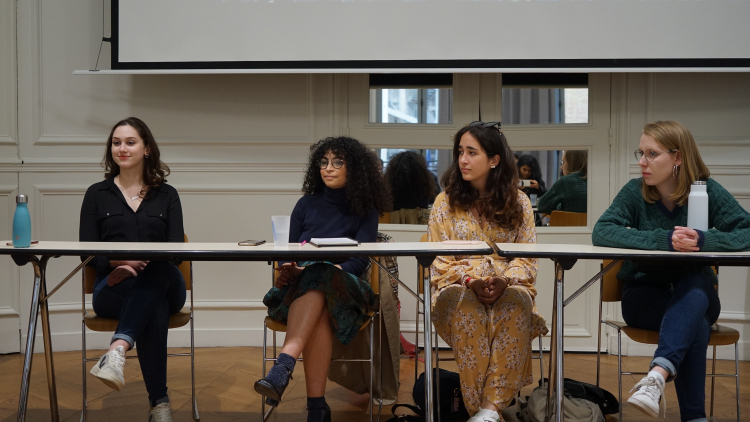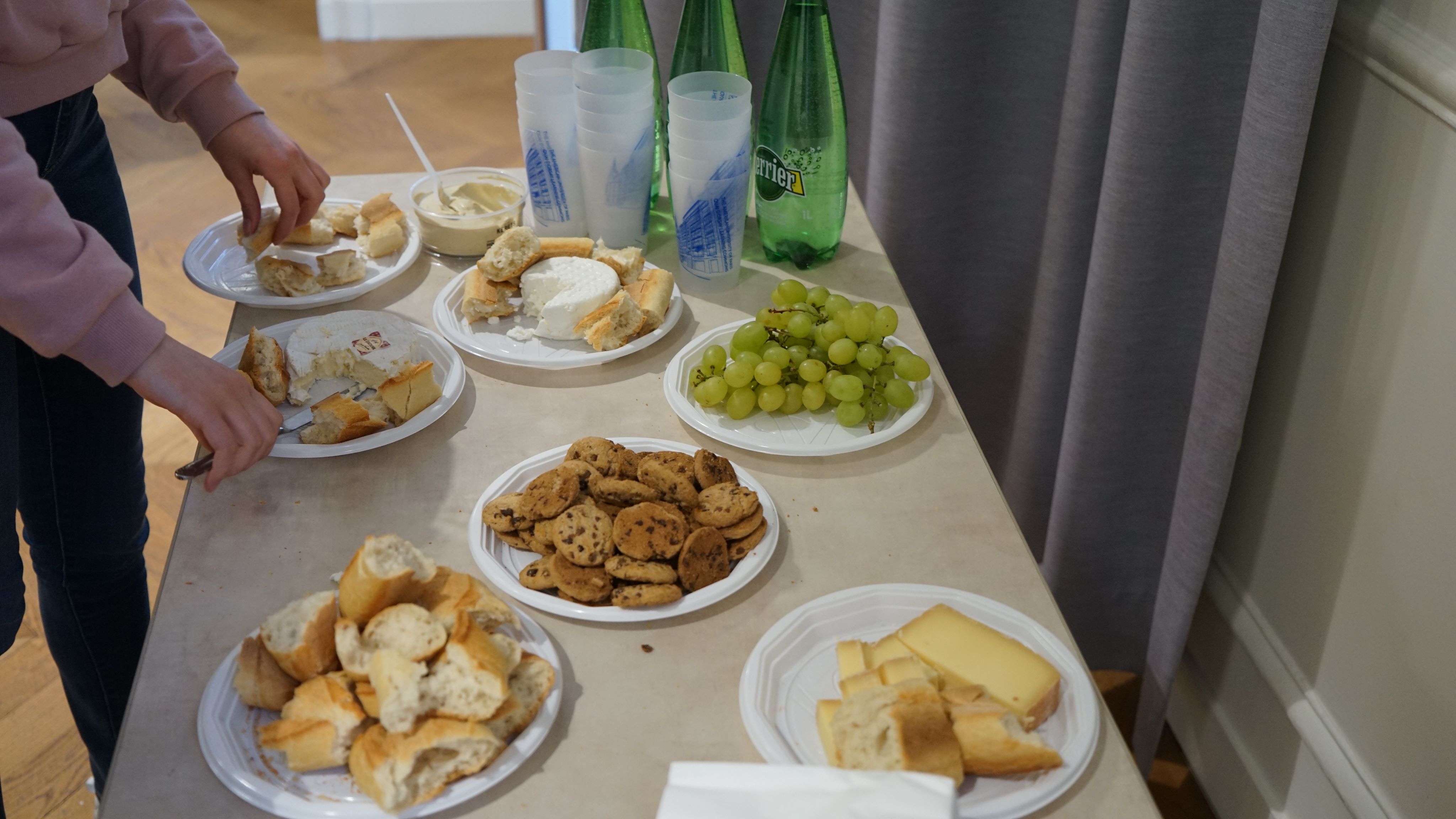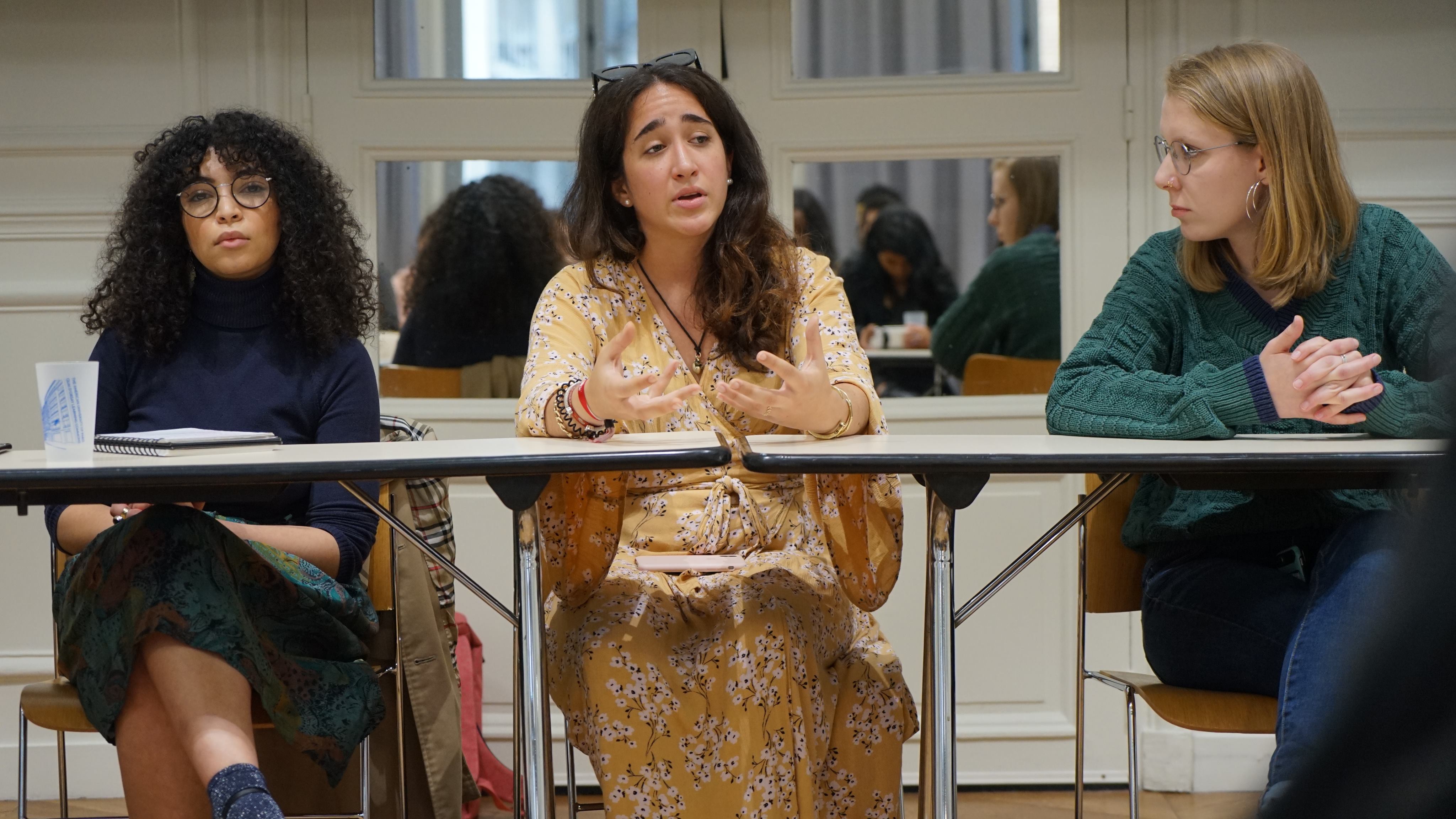AUP Diversity Panel 2019

*Trigger warning: This article contains sensitive information involving sexual assault that some might find disturbing. Reader discretion is adviced.
The conversation of representation is important in 2019. In a time of #MeToo and #BlackLivesMatter, people want to have their voices heard and issues discussed in order to understand that their voices are relevant in today's discourse. This conversation becomes especially important given that April is Sexual Assault Awareness month. In the spirit of representation and awareness, the American University of Paris, an institution that prides itself on having a diverse international student body who come from many different countries, ethnicities, and backgrounds, hosted its first diversity panel on April 17, 2019. The live-streamed panel, partnered with campus clubs, GenSex-Ed and AUP for Consent, is apart of the "Let's Talk" series organized by the AUP Student Media (ASM). The goal of this event was to discuss one major topic of diversity which is gender, diversity, sexuality and media representation.
At 6:50 PM the event commenced in Combes 102 with a brief 10 minutes of socializing and snacks, where there was an array of sparkling water and food for those who attended the event. At promptly 7:00 PM, student leadership coordinator and moderator for the event, Safiya Benyahia, quickly ushered everyone to their seats so that the panel would commence. Then, students were introduced to the panelists.
Snacks served at the event. Image credit: Zakiyyah Job
Panel Speakers
Jamie Nyqvist: Film Studies Representative
Dhouha Djerbi: President of Gender Sexuality Club
Fernanda Sapiña: Editor in Chief for the Peacock Plume
Frances Eby: President of AUP for Consent
This female-led Panel Consisted of students who came from different ethnic and interdisciplinary backgrounds at AUP. Jamie Nyqvist, film major and Finnish American would offer a film perspective to the event. Tunisian student Dhouha Djerbi is the president of GenSex (Gender and Sexuality Club at AUP) and would use Intersectionality as a framework to discuss gender and sexuality, Mexican student and journalist Fernanda Sapiña would discuss how the media treats coverage of survivors of sexual assault, and lastly American student and President of AUP for Consent, Frances Eby would discuss the changing narratives of sexual violence and sexual assault.
The discussion opened with the question of issues surrounding gender identity in the media, and definitions that would be helpful in understanding the phenomenon. Dhouha Djerbi answered with the definition of intersectionality, and how understanding the term can help understand the current lack of representations of gender identity and representations in the media. In addition, she provided examples of groups she felt that were still lacking representation such as individuals sex workers, women with disabilities and senior citizens that are still being left out of the conversation.
"Only by these standards can journalists succeed in giving a voice to people who do not have one and create a space for all groups to finally achieve representation."
Editor in Chief and journalist Fernanda Sapiña added her perspective on how the media failed to empower and provide accurate representations for these groups. "Media does not give enough credit to these issues unless they are clickbait or can generate enough outrage," she said. She stated that this lack of visibility shows an evident disconnect between us individuals as humans and things that affect us in the media. "The first responsibility of journalists should be to the people and to pass on fair and objective information to them. Only by these standards can journalists succeed in giving a voice to people who do not have one and create a space for all groups to finally achieve representation," she concluded. Other questions that were posed to the panelists included what narratives are harmful to survivors and what narratives perpetuate sexual violence.
"Before, there was either do not talk about it and never tell anyone, or seen as a pretty delicate thing that needed to be taken care of."
Frances Eby responded first to this question. She discussed how rape was viewed in public discourse before the #MeToo era, "Before, there was either do not talk about it and never tell anyone, or seen as a pretty delicate thing that needed to be taken care of." Eby talked about the social stigma in it of how in the past rape and sexual assault victims like Anita Hill were torn apart for openly telling their narratives. She applauded movements like #MeToo for allowing more victims to have the courage to come out and change the misconception that sexual assaults are isolated incidents. Lastly, Eby warned that people and the film and TV industry should be careful not to try to lump sexual victim's stories together and create a universal model on how sexual assault survivors should process trauma, "Victims heal in different ways and putting everyone's stories into one group will only promote further damage to individuals rather than help." Eby's advice for journalists, directors or simply anyone interested in tackling such a sensitive topic is, "write not only with passion but also to write with compassion."
Panelist speaker Fernanda Sapina discusses media responsibility. Image Credits: Zakiyyah Job
"Many directors do not address the complexity of many different sexual violence cases and instead just becomes about using sexual violence as a motive for revenge or as a spectacle."
Jamie Nyqvist talked about how the film industries sometimes fail to properly address sensitivities surrounding sexual assault and rape victims and how they continue to perpetuate existing stereotypes of these groups. "Everything you choose to portray is a choice and that includes what directors choose not to show as well," she said. According to Nyqvist, directors continue to make the mistake of making one person's narrative representative of an entire group of peoples, "Many directors do not address the complexity of many different sexual violence cases and instead it just becomes about using sexual violence as a motive for revenge or as a spectacle."
The event reached a conclusion at 8:00 PM, and there was an opportunity for students to pose questions to the panelists. The event finished with a round of applause and the moderator once again thanked the panelist as well all those in the audience who had the courage to attend the session.
The overall event was a success and those who attended the event were left with many key takeaways from the event. One student, Adrienne Cuffley, even hoped to see more panels like this being hosted every semester in AUP. Moderator Safiya Benyahia agreed and stated that the goal of AUP going forward will be to host more panels on diversity and to partner with more clubs on campus in order to advance further conversations surrounding diversity and sexual assault.









